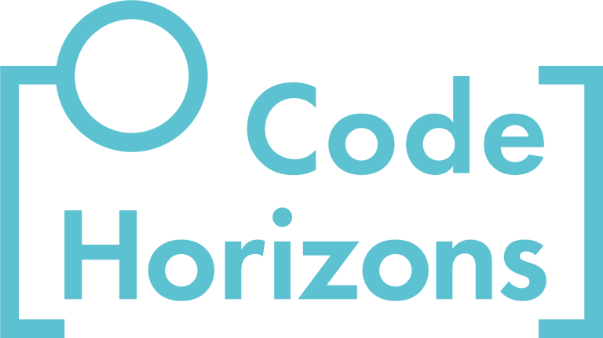How Should I Learn R?
There are lots of good reasons to learn R, even if it won’t be your main statistical package. One very good reason is most of the seminars that we offer now use R as a primary tool.
The best path forward depends on what you already know. Check out the recommendations below for total beginners or for those who are looking to improve on some existing R proficiency.
I AM A BEGINNER
If you are new to R, the best way to learn it is by taking our course, Introduction to R for Data Analysis. Or, if you’re coming from an SPSS or Stata background, try our 8-hour seminars on R for SPSS Users and R for Stata Users.
What if you want to learn just enough R to feel comfortable in one of our seminars that use R? In that case, our first recommendation is to watch a one-hour video that was prepared especially for participants in our seminars.
I ALREADY KNOW SOME R
If you have already started your R journey, you might still benefit from our Introduction to R for Data Analysis course. But if you’re ready to move beyond the basics, there are a few directions you can take to increase your R coding skills:
- Data Wrangling with R will help you learn data management skills using the tidyverse.
- Data Visualization with R will teach you to use ggplot2 to make stunning graphs.
- Interpreting and Communicating Statistical Results with R help you tackle the challenges of understanding and conveying complex statistical results by using several useful R packages (like marginaleffects, modelsummary, and tinytable).
- My First R Package will guide you through the creation of your very own R package.
- Reproducible Reports with Quarto and R Markdown will help you generate reports and presentations directly in RStudio.
- Workflow of Data Analysis in R will show you how to integrate R into an organized project workflow that will make you more productive.
- Beyond these coding-forward classes, we also have many other courses focused on learning new methods and approaches using the R language.
R REFERENCES
In addition to these options, there are many references that you can use to refresh or expand your knowledge. We recommend the following as particularly useful:
R FOR DATA SCIENCE
This is the gold standard for developing R programming, data management, and visualization skills. This book has many short chapters. Even just going through chapters 2-6 would give you a basic familiarity with R.
Click here to read R for Data Science.
MODERN DIVE
This online book provides a balanced introduction to R with a strong emphasis on data wrangling and visualization. After going through the first two parts, you would be ready for any of our R courses.
Click here to read Modern Dive.
OUR SEMINARS THAT USE R INCLUDE:
- Advanced Machine Learning with R
- Analysis of Biological Aging
- Analysis of Complex Survey Data
- Analyzing Text Data Using Sentiment Analysis
- Applied Bayesian Data Analysis
- Applied Bayesian Data Analysis: A Second Course
- Applied Social Network Analysis
- Categorical Data Analysis
- Causal Inference in Econometrics
- Causal Mediation Analysis
- Data Visualization Using R
- Data Wrangling with R
- Design and Analysis of Simulation Studies
- Difference in Differences
- Experimental Methods
- Exploratory Factor Analysis
- Exploratory Graph Analysis with R
- Extracting and Analyzing Web and Social Media Data
- How to Choose a Model for Longitudinal Data
- Interactive Visual Dashboards Using R Shiny
- Interpreting and Communicating Statistical Results with R
- Introduction to Epigenomics
- Introduction to R for Data Analysis
- Introduction to Social Network Analysis
- Introduction to Statistical Genetics
- Introduction to Structural Equation Modeling
- Introduction to Text as Data
- Introduction to the Analysis of Electronic Health Records
- Item Response Theory
- Latent Growth Curve Modeling
- Longitudinal Data Analysis Using R
- Machine Learning
- Machine Learning for Estimating Causal Effects
- Mastering Conjoint Analysis
- Matching and Weighting for Causal Inference with R
- Mediation, Moderation, and Conditional Process Analysis
- Mendelian Randomization for Causal Inference
- Missing Data Using R
- Missing Data Using R (for students)
- Multilevel and Mixed Models Using R
- My First R Package
- Nonparametric and Semiparametric Statistics
- Power Analysis and Sample Size Planning
- Propensity Score Analysis: Advanced
- Propensity Score Analysis: Basics
- Psychometrics
- R for SPSS Users
- R for Stata Users
- Regression Discontinuity Designs
- Reproducible Reports with Quarto and R Markdown
- Sample Size Justification
- Scale Construction and Development
- Sensitivity Analysis for Causal Inference
- SMART Designs for Developing Adaptive Interventions
- Social Networks: Statistical Approaches
- Structural Equation Modeling Done Right
- Structural Equation Modeling with Categorical Data
- Survival Analysis Using R
- Time Series Analysis
- Two Key Techniques for Quantifying the Robustness of Causal Inferences
- Using Large-Language Models for Social Science Research
- Using Large Language Transformer Models for Research in R
- Workflow of Data Analysis Using R
